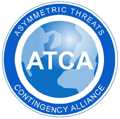
Sustained & Rising Oil Price
Does Global Data support Demand/Supply
Imbalance?
London, UK - 11th June 2008, 21:58 GMT
Dear ATCA Colleagues
[Please note that the views presented by individual contributors
are not necessarily representative of the views of ATCA, which is neutral.
ATCA conducts collective Socratic dialogue on global opportunities and threats.]
We are grateful to Prof Prabhu Guptara, Executive Director,
Wolfsberg (UBS), Switzerland -- writing in his personal capacity -- for
his additional query in regard to the ATCA Socratic Dialogue, "What
is the Right Price for Oil?" and we also attach the authors' response
in this regard titled, "Sustained & Rising Oil Price: Does the
Global Data support Demand/Supply Imbalance as Main Reason?" He asks:
Dear DK and Colleagues
The ATCA briefing "What is the Right Price for
Oil?" more or less starts by saying "The data presented so
far overwhelmingly appears to support a fundamental supply/demand imbalance".
However, we haven't seen relevant key figures anywhere. To my mind, the
key questions are:
[CONTINUES]
[ATCA Membership]
Yours faithfully
Prabhu Guptara
In response to Prof Guptara, we present, "Sustained & Rising Oil
Price: Does the Global Data support Demand/Supply Imbalance as Main Reason?
" from the authors of the ATCA briefing, "What
is the Right Price for Oil?" They write:
Dear DK and Colleagues
There is no unified set of public authoritative data on crude oil reserves.
The IEA's 2007 "Reference Outlook" projects world primary energy
needs to grow by 55% between 2005 and 2030. In reality, this is little more
than a simple extrapolation of the historic demand curve, which they say
will be met largely by fossil fuels, predominantly from OPEC. They base
their projections inter-alia on the assumption that "the crude import
price falls back from recent highs of over USD 75 per barrel to around USD
60 (in year-2006 dollars) by 2015 and then recovers slowly, reaching USD
62 (or USD 108 in nominal terms) by 2030." The IEA argument is not
informative, as it is not supported by a bottoms-up field-by-filed analysis
on the supply side.
[CONTINUES]
[ATCA Membership]
ATCA RAW, mIU, Hamid Hakimzadeh & Dr Harald Malmgren
[ENDS]
The ATCA briefing was written jointly by the mi2g Intelligence
Unit (mIU); the ATCA Research and Analysis Wing (RAW) based in Canary
Wharf, London; Hamid Hakimzadeh, Hedge Fund Specialist and Global Asset
Allocation Modeller, based in Buckinghamshire, England; and Dr Harald
Malmgren, Chief Executive, Malmgren Global, based in Washington, DC.
To reflect further on this, please click here
and read views as well as respond directly within the online forum.
We welcome your thoughts, observations and views. Thank you.
Best wishes
ATCA: The Asymmetric Threats
Contingency Alliance is a philanthropic expert initiative founded
in 2001 to resolve complex global challenges through collective
Socratic dialogue and joint executive action to build a wisdom
based global economy. Adhering to the doctrine of non-violence,
ATCA addresses asymmetric threats and social opportunities arising
from climate chaos and the environment; radical poverty and microfinance;
geo-politics and energy; organised crime & extremism; advanced
technologies -- bio, info, nano, robo & AI; demographic skews
and resource shortages; pandemics; financial systems and systemic
risk; as well as transhumanism and ethics. Present membership
of ATCA is by invitation only and has over 5,000 distinguished
members from over 120 countries: including 1,000 Parliamentarians;
1,500 Chairmen and CEOs of corporations; 1,000 Heads of NGOs;
750 Directors at Academic Centres of Excellence; 500 Inventors
and Original thinkers; as well as 250 Editors-in-Chief of major
media.
The Philanthropia, founded in 2005, brings together over
1,000 leading individual and private philanthropists, family offices,
foundations, private banks, non-governmental organisations and
specialist advisors to address complex global challenges such
as countering climate chaos, reducing radical poverty and developing
global leadership for the younger generation through the appliance
of science and technology, leveraging acumen and finance, as well
as encouraging collaboration with a strong commitment to ethics.
Philanthropia emphasises multi-faith spiritual values: introspection,
healthy living and ecology. Philanthropia Targets: Countering
climate chaos and carbon neutrality; Eliminating radical poverty
-- through micro-credit schemes, empowerment of women and more
responsible capitalism; Leadership for the Younger Generation;
and Corporate and social responsibility.
Intelligence Unit | mi2g | tel +44 (0) 20 7712 1782 fax +44
(0) 20 7712 1501 | internet www.mi2g.net
mi2g: Winner of the Queen's Award for Enterprise in the category
of Innovation
|

